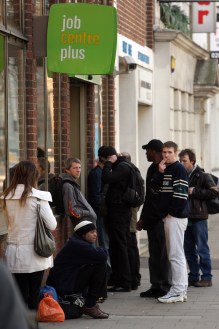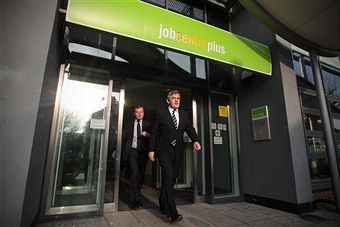Where Are the Jobs in the Election Budget?
I agree with Fraser that there is a welcome modesty about Alistair Darling’s budget. It was also good to see Maggie Darling outside Number 11, a wife of whom the Chancellor is justly proud. But I did wonder where the measures are for tackling the joblessness, which will be the likely consequence of the public sector cuts any new government will have to impose. Last year we had a “budget for jobs” with the announcement of the Future Jobs Fund, but this year the only announcement was the extension of the young person’s job guarantee until 2012. Unemployment has not hit the levels first feared at the beginning of the











